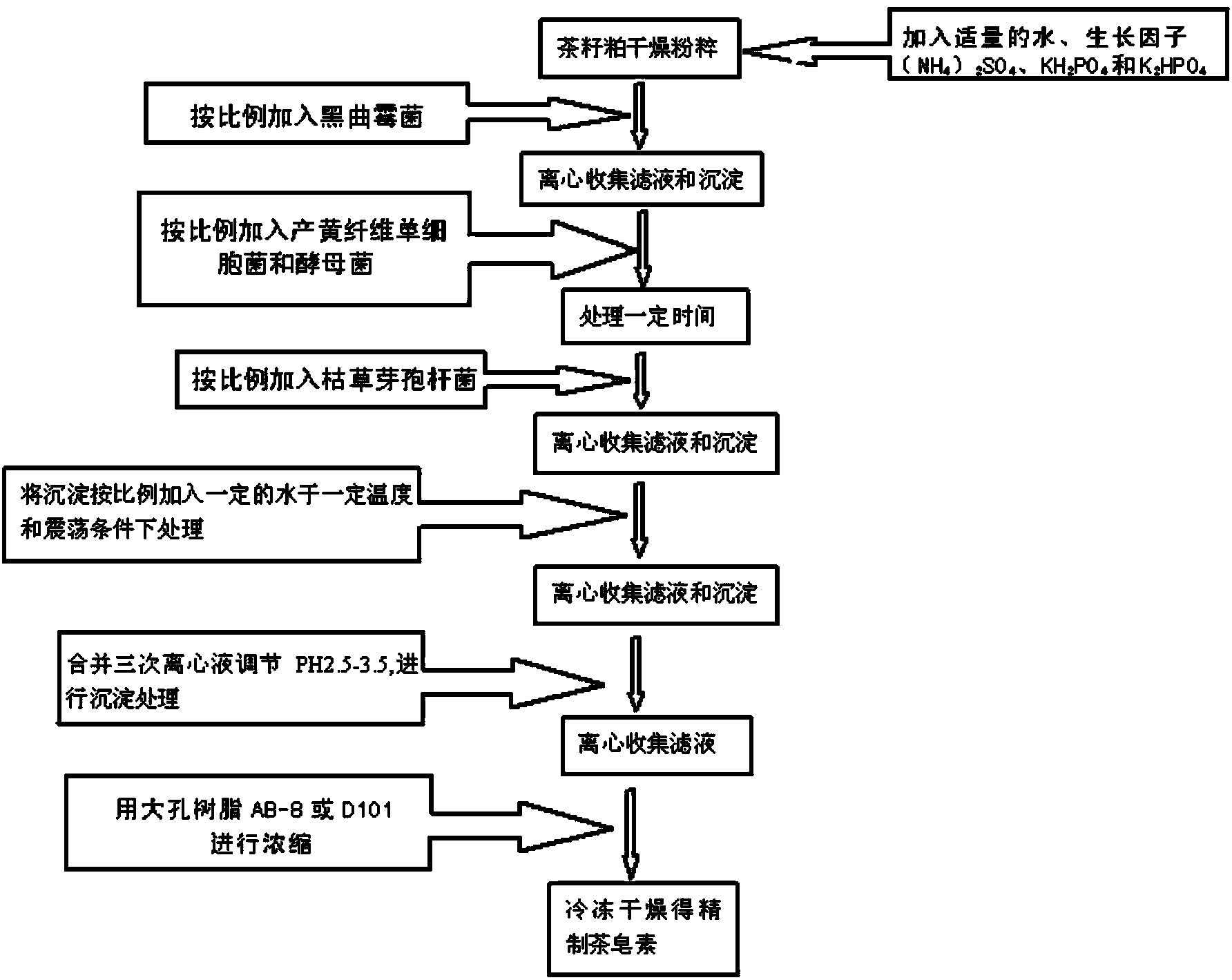Method for extracting tea saponin from tea seed meal with microbial fermentation method
A microbial fermentation method, tea saponin technology, applied in the directions of microorganism-based methods, biochemical equipment and methods, microorganisms, etc., can solve the problems of environmental pollution of solvents, inability to use large-scale production, large solvent consumption, etc.
- Summary
- Abstract
- Description
- Claims
- Application Information
AI Technical Summary
Problems solved by technology
Method used
Image
Examples
Embodiment Construction
[0022] The present invention will be further described below in conjunction with the accompanying drawings, and embodiments of the present invention will be given.
[0023] The present invention proposes the method for extracting tea saponin from tea seed dregs by microbial fermentation, the biggest technical features of which are:
[0024] First, a variety of microorganisms are directly used to participate in the fermentation process of tea seed meal, rather than using microbial enzymes. Direct application of microorganisms is not only cheaper than the application of microbial enzymes, but also the application conditions of microorganisms are relatively lower than those of enzymes, and the requirements for reaction conditions are relatively low, without the harsh requirements of enzyme treatment processes. Moreover, a kind of microbial fermentation can decompose tea seed meal into several components, which are not available in the specificity of enzymes. Therefore, the benef...
PUM
 Login to View More
Login to View More Abstract
Description
Claims
Application Information
 Login to View More
Login to View More - R&D
- Intellectual Property
- Life Sciences
- Materials
- Tech Scout
- Unparalleled Data Quality
- Higher Quality Content
- 60% Fewer Hallucinations
Browse by: Latest US Patents, China's latest patents, Technical Efficacy Thesaurus, Application Domain, Technology Topic, Popular Technical Reports.
© 2025 PatSnap. All rights reserved.Legal|Privacy policy|Modern Slavery Act Transparency Statement|Sitemap|About US| Contact US: help@patsnap.com

